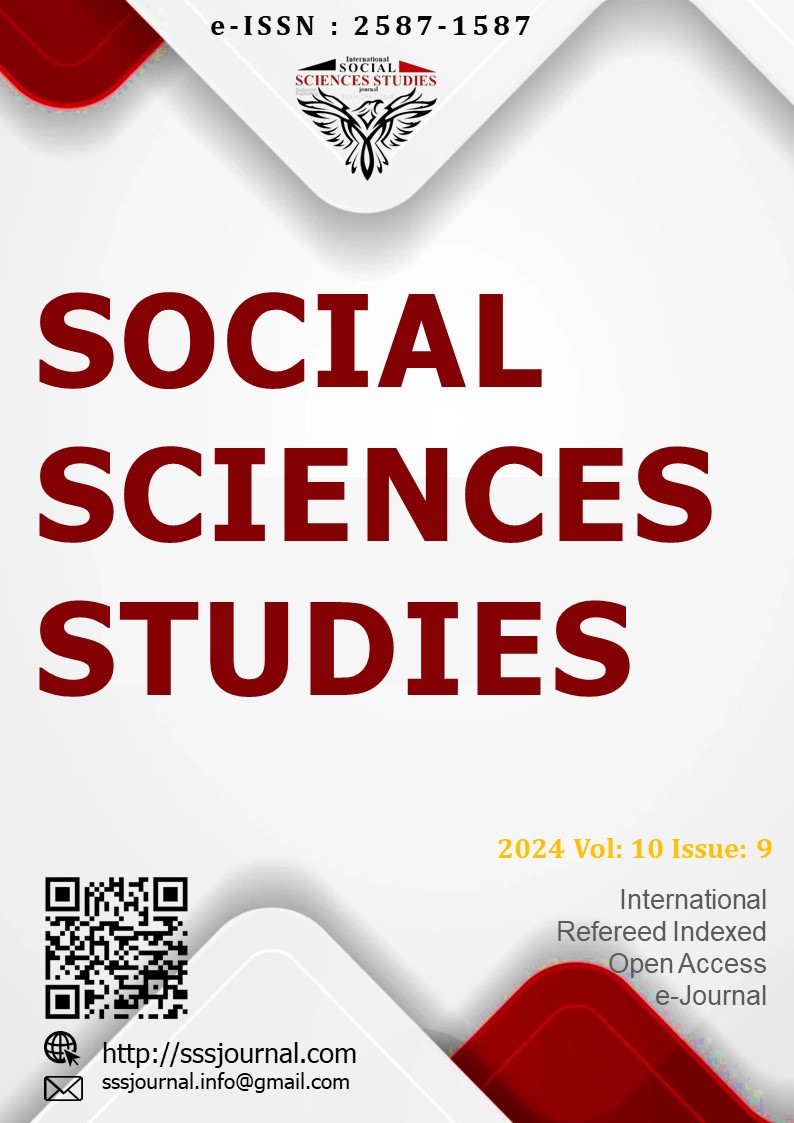Üniversite Öğrencilerinin Çevrimiçi Öğrenmede Hazır Bulunuşluk ve Memnuniyet Düzeylerinin Değerlendirilmesi
Author :
Abstract
|
Bu araştırmada amaç, üniversite öğrencilerinin çevrimiçi öğrenmede hazır bulunuşluk ve memnuniyet düzeylerinin değerlendirilmesidir. Araştırmanın örneklemini, Sağlık Hizmetleri Meslek Yüksekokulu’nda öğrenim gören, çalışmaya katılmaya gönüllü olan öğrenciler oluşturmuştur (n=412). Araştırmanın verileri; “Öğrenci Tanıtıcı Bilgi Formu”, “Çevrimiçi Öğrenme Hazır Bulunuşluk Ölçeği”, “E-Öğrenme Sürecine İlişkin Memnuniyet Düzeyi Ölçeği” kullanılarak toplanmıştır. Araştırmaya katılan öğrencilerin yaş ortalaması 20,44±3,02 olup, %80,6’sı kadın %56,6’sı 1. sınıftır. Öğrencilerin %71,8’i internet ve bilgisayar kullanımında yeterli bilgiye sahip olduğunu, %68’i uzaktan eğitimde verilen derslerin yüz yüze eğitim kadar etkili olmadığını ve %55,8’i uzaktan eğitim merkezinin ihtiyaç duyduklarında teknik destek sağladığını belirtmiştir. Öğrencilerin hazır bulunuşluk ölçeği puan ortalaması 3,56±0,59, memnuniyet ölçeği puan ortalaması ise 3,48±0,85 olarak belirlenmiştir. Öğrencilerin internet ve bilgisayar kullanma bilgisine sahip olma durumuna göre hazır bulunuşluk ve memnuniyet puan ortalamalarında anlamlı farklılık olduğu saptanmıştır. İnternet ve bilgisayar kullanmakta yeterli bilgiye sahip öğrencilerin hazır bulunuşluk ve memnuniyet puan ortalamalarının daha yüksek olduğu belirlenmiştir. Hazır bulunuşluk ölçeği ile memnuniyet ölçeği arasında pozitif yönde orta derecede ilişki olduğu görülmüştür. |
Keywords
Abstract
|
The aim of this research is to evaluate the readiness and satisfaction levels of university students in online learning. The sample of the study consisted of students studying at the Vocational School of Health Services and volunteering to participate in the study (n=412). Data of the research; It was collected using the "Student Introductory Information Form", "Online Learning Readiness Scale", "Satisfaction Level Scale Regarding the E-Learning Process". The average age of the students participating in the research is 20.44±3.02, 80.6% are female and 56.6% are first graders. 71.8% of the students stated that they had sufficient knowledge in using the internet and computers, 68% stated that the courses given in distance education were not as effective as face-to-face education, and 55.8% stated that the distance education center provided technical support when they needed it. The students' average readiness scale score was determined as 3.56±0.59, and the satisfaction scale average score was determined as 3.48±0.85. It was determined that there was a significant difference in the students' readiness and satisfaction score averages according to their knowledge of using the internet and computers. It was determined that the average readiness and satisfaction scores of students who had sufficient knowledge in using the Internet and computers were higher. It was observed that there was a moderate positive relationship between the readiness scale and the satisfaction scale. |





